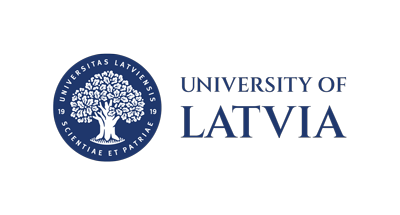How will AI change intelligence and decision-making?
DOI:
https://doi.org/10.37380/jisib.v10i1.564Keywords:
Artificial intelligence (AI), competition, competitive advantage, decision-making, intelligence failures, prediction, strategic surprisesAbstract
The world is facing a rapid pace of changes with a heightened sense of uncertainty, ambiguity, and complexity in both government and business landscapes. New threats and major changes in the world order are creating an external environment that demands closer monitoring and greater anticipatory and predictive skills. Deeper analysis and speed of action are becoming more important for agile organizations and governments. The needs to upgrade the capabilities of intelligence analysts, mostly in strategic intelligence, have been known for quite a long time. Scholars who are looking into intelligence failures1 and other major national security2 and business3 events when decision-makers were not warned in time, seek expert tools and methodologies to avoid these failures4. Management is constantly concerned, aspiring to receive better decisions by relying on solid analysis in order to better understand the challenges ahead5. The current direction is in the same direction, while new emerging technologies enable theory and practice to move forward. Artificial intelligence (AI) capabilities definitely are jumping two stairs up. It looks that through new AI tools, the value of humans will not become redundant but rather improve its outcomes by relying on better intelligence for their decisions.References
Bar-Joseph, U., and McDermott, R. Intelligence Success & Failure, The Human Factor, Oxford University Press, 2017. DOI: https://doi.org/10.1093/acprof:oso/9780199341733.001.0001
Marrin, S. "Evaluating CIA's Analytical Performance: Reflections of a Former Analyst", Orbis, 326 (2013). DOI: https://doi.org/10.1016/j.orbis.2013.02.007
Gilad, B. Early Warning, NY Amacom, 2004.
Betts, R. K. "Two faces of intelligence failure: September 11 and Iraq’s missing WMD." Political Science Quarterly, 122, 4 (2007): 585-606. DOI: https://doi.org/10.1002/j.1538-165X.2007.tb00610.x
Bisson, C., and Barnea, A. “Competitive Intelligence: From being the “eyes and
the ears” to becoming “the brain” of companies”, Competitive Intelligence Magazine, Vol 23, no. 4, Fall, 2018.
Barnea, A. "Failures in National and Business Intelligence: a Comparative Study", A Thesis Submitted for the Degree "Doctor of Philosophy", University of Haifa, Faculty of Social Sciences, School of Political Sciences (2015).
Betts, R. "Analysis, War and Decision: Why intelligence failures are inevitable", Studies in Intelligence, Journal of the American Intelligence Professional (2014). https://www.cia.gov/library/readingroom/docs/DOC_0000612718.pdf
Colson, E. “What AI-Driven Decision Making Looks Like”, Harvard Business Review, July 08, 2019, https://hbr.org/2019/07/what-ai-driven-decision-making-looks-like
PwC, “Artificial intelligence may be a game changer for pricing”, 2019, https://www.pwc.be/en/news-publications/2019/artificial-intelligence-may-be-game-changer-for-pricing.html
Russell, Stuart J.; Norvig, Peter (2003), Artificial Intelligence: A Modern Approach (2nd ed.), Upper Saddle River, New Jersey: Prentice Hall, p. 4.
Chui, Michael and McCarthy Brian, “An Executive Guide to AI”, McKinsey, October , 2018.
Pherson, K. and Pherson, R. Critical Thinking for Strategic Intelligence, CQ Press, 2017.
Shalev, A. Israel’s Intelligence Assessment before the Yom Kippur War: disentangling deception and distraction, Sussex Academic Press, Australia (2010). DOI: https://doi.org/10.2307/jj.4256602
Goldstein, P. "Why Intelligence Agencies Are So Interested in AI?" Fedtech Magazine, Oct. 13(2017), https://fedtechmagazine.com/article/2017/10/why-intelligence-agencies-are-so-interested-ai
Tucker, p. "What the CIA'S Tech Director Wants from AI", Defense One, September 6, (2017), http://cdn.defenseone.com/a/defenseone/interstitial.html?v=7.12.0&rf=http%3A%2F%2Fwww.defenseone.com%2Ftechnology%2F2017%2F09%2Fcia-technology-director-artificial-intelligence%2F140801%2F
Bughin, J., Chui, M. and McCarthey, B. (2017). "How to make AI work for your business", Harvard Business Review, August.
Anderson, N. (1974). "Cognitive Algebra: Integration Theory Applied to Social Attribution", Advances in Experimental Social Psychology 26:1-101. DOI: https://doi.org/10.1016/S0065-2601(08)60035-0
McKinsey & Company, “Enduring Ideas: The 7-S Framework”, March 2008, https://www.mckinsey.com/business-functions/strategy-and-corporate-finance/our-insights/enduring-ideas-the-7-s-framework
Margretta, J. (2011). Understanding Michael Porter: The Essential Guide to Competition and Strategy, Harvard Business Press.
Porter, M. (1998). Competitive Strategy: Techniques for Analyzing Industries and Competitors, Free Press.
Solomon, S. (2019). “Israel needs national vision for AI or risks falling behind, tech authority says”, the Times of Israel, 14th. January
Israel, D. (2017). “The Future of Artificial Intelligence in the IDF”, Israel Defense, 2nd. July
Barnea, A. (2020). “Strategic intelligence: a concentrated and diffused intelligence model”, Intelligence and National Security, DOI: 10.1080/02684527.2020.1747004 DOI: https://doi.org/10.1080/02684527.2020.1747004
Downloads
Published
Issue
Section
License
Copyright (c) 2020 Journal of Intelligence Studies in Business

This work is licensed under a Creative Commons Attribution-NonCommercial-NoDerivatives 4.0 International License.
Authors who publish with this journal agree to the following terms:
- Authors retain copyright and grant the journal right of first publication with the work simultaneously licensed under a Creative Commons Attribution License that allows others to share the work with an acknowledgement of the work's authorship and initial publication in this journal.
- Authors are able to enter into separate, additional contractual arrangements for the non-exclusive distribution of the journal's published version of the work (e.g., post it to an institutional repository or publish it in a book), with an acknowledgement of its initial publication in this journal.
- Authors are permitted and encouraged to post their work online (e.g., in institutional repositories or on their website) prior to and during the submission process, as it can lead to productive exchanges, as well as earlier and greater citation of published work (See The Effect of Open Access).







